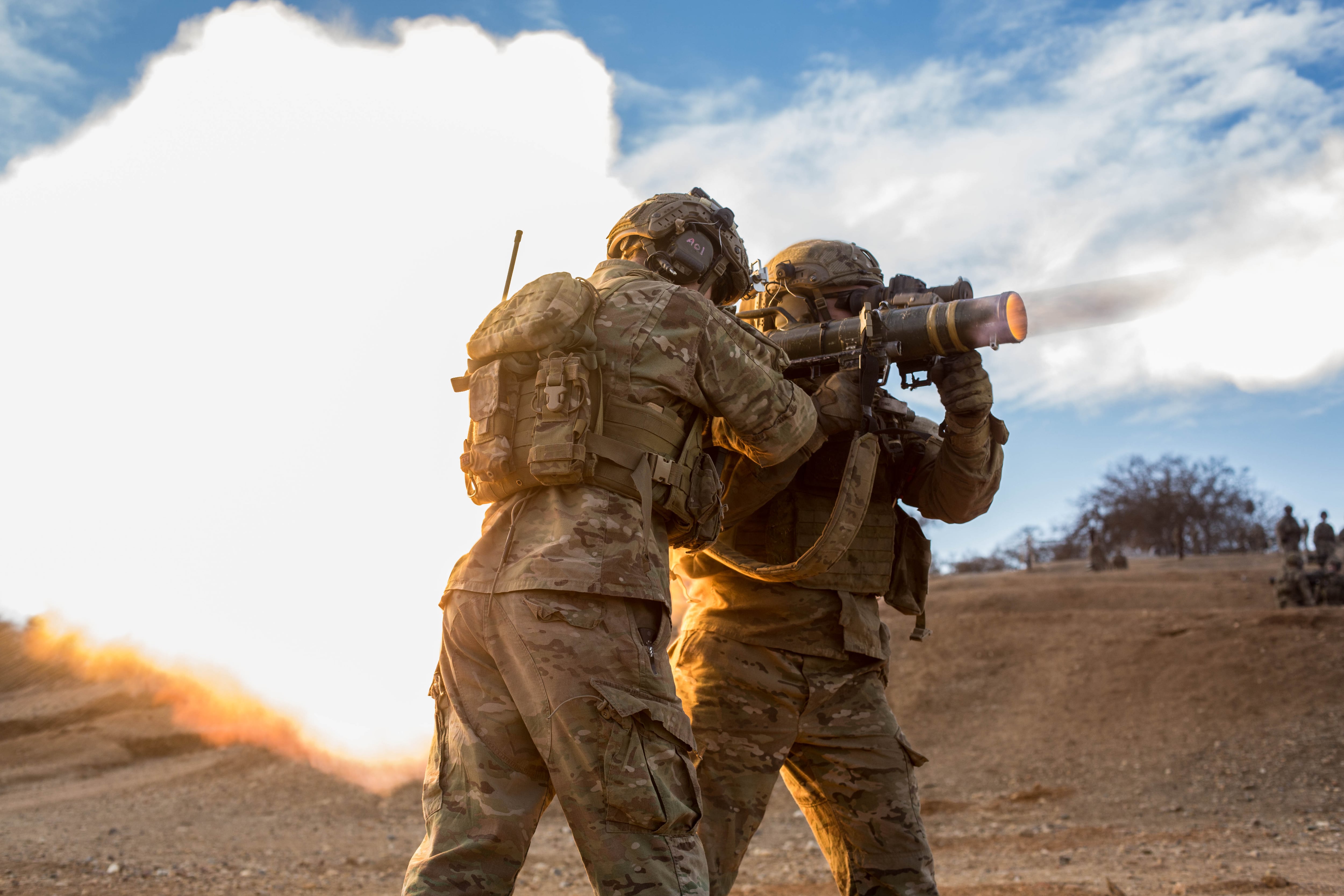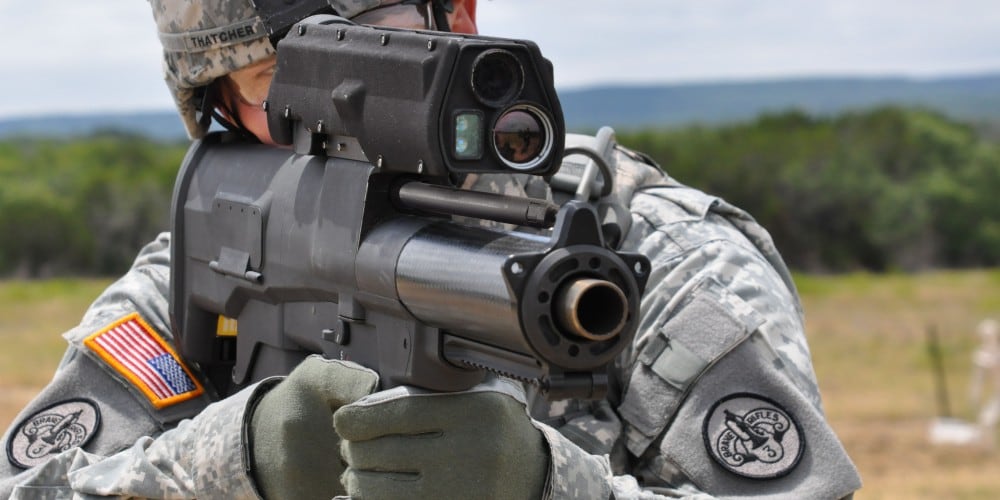Instead of pursuing the XM25 air-bursting grenade launcher, the Army will substitute air-bursting 40mm rounds for firing over obstacles and the much larger 84mm Carl Gustaf recoilless rifle when troops need to blow through a barrier.
The XM25 program was officially canceled in July, ending a public limbo for the program that came into question back in 2016 for failures in field testing and costly developments. The program development began in 2000 and field testing started in 2010.
The launcher nicknamed “The Punisher” malfunctioned at least three times, in separate instances in 2011, 2012 and 2013.
A 2016 report by the Department of Defense Inspector General noted those problems, along with issues raised by Army Rangers about the weapon’s 14-pound weight and limited five-round capacity.
The 25mm shoulder-fired weapon was designed to let users control the detonation point of explosive rounds, allowing soldiers to engage targets behind walls, for example, or in other situations where traditional line-of-sight weapons wouldn’t work.
So, how will soldiers counter this capability gap of shooting over, around or through obstacles?
Soldiers in those scenarios will now instead rely on air-bursting high-explosive 40mm rounds and the 84mm Carl Gustaf recoilless rifle, already fielded to the Army’s infantry brigade combat teams.
RELATED

Existing solutions could include the 40mm round made by Norwegian armaments company Nammo, and Rheinmetall supplies the German army with airburst 40mm rounds that work by using an infrared signal from an aiming unit that detonates the explosive at the predetermined distance above its target. Such rounds have a range out to 2,400 yards when fired from automatic grenade launchers such as the Mk 19.
By ending the XM25 program, the IG report noted that the Army could shift $1 billion in funding for the weapon elsewhere.
While that money goes elsewhere now, the weapon will remain in the Army’s inventory and its technology in its files.
The Army did build 20 systems throughout the life of the program, and after ending the contract with Orbital ATK, the Army reached a negotiated settlement, said an Army spokesman.
“The Army has since received rights to the program’s research and development,” Lt. Col. Isaac Taylor, the spokesman, said.
Todd South has written about crime, courts, government and the military for multiple publications since 2004 and was named a 2014 Pulitzer finalist for a co-written project on witness intimidation. Todd is a Marine veteran of the Iraq War.





